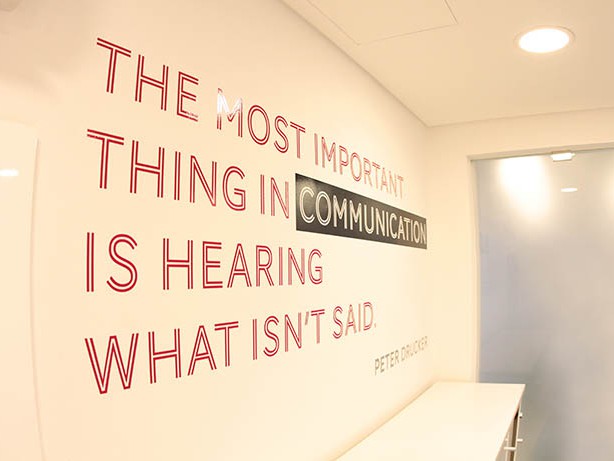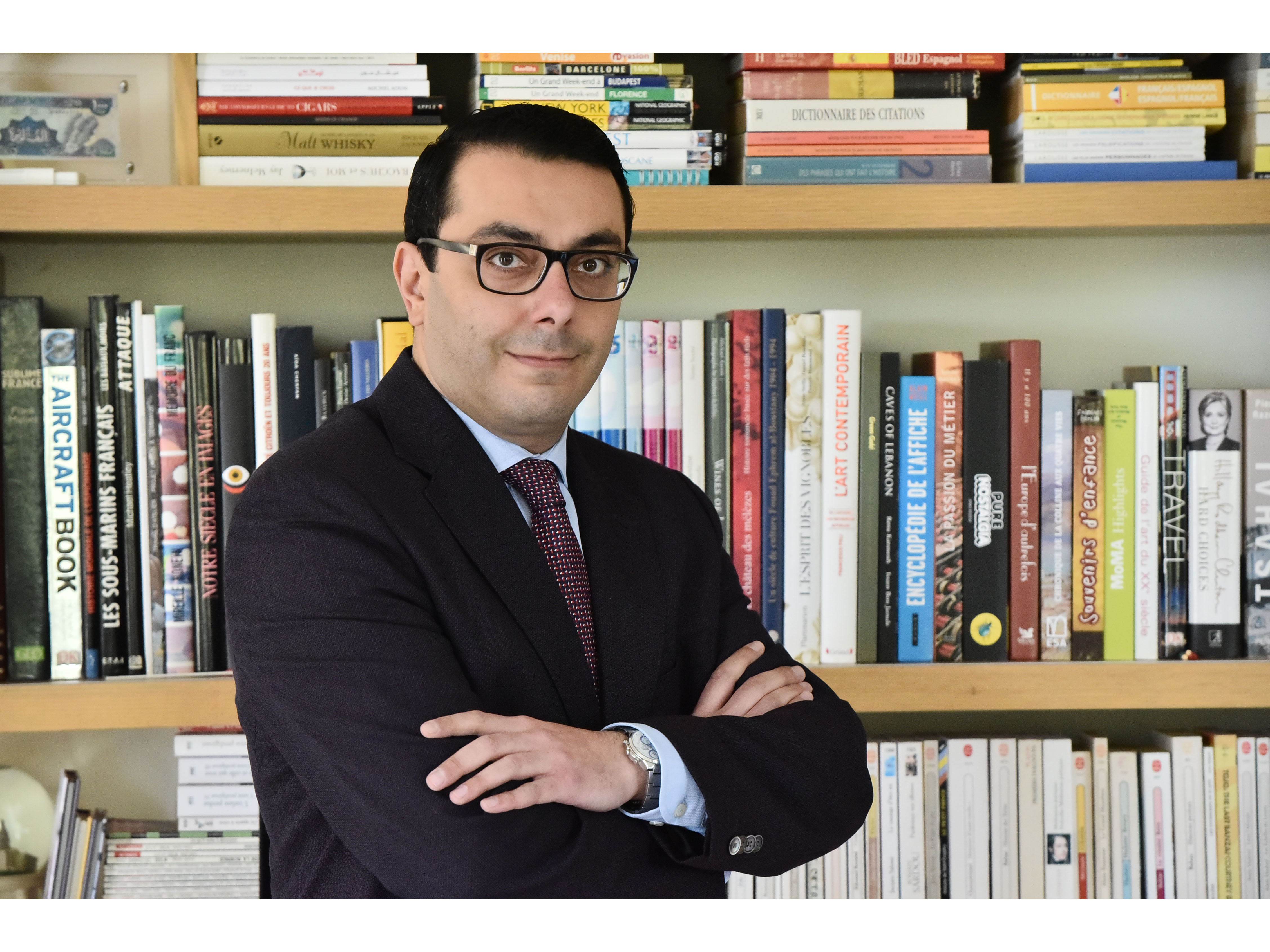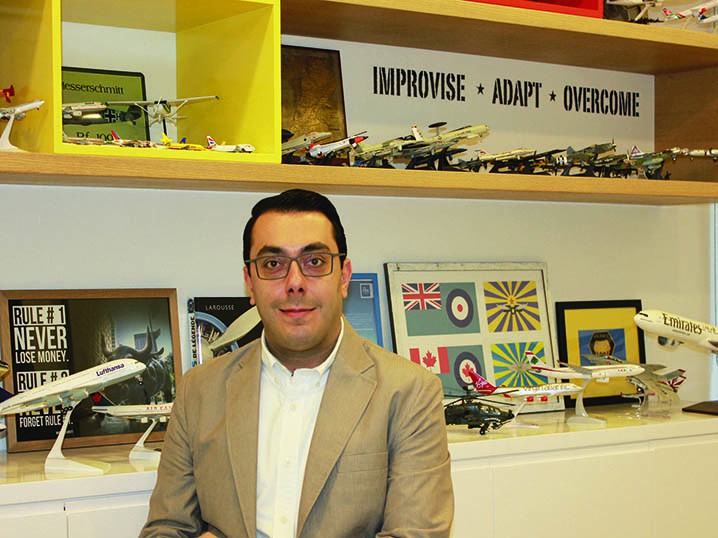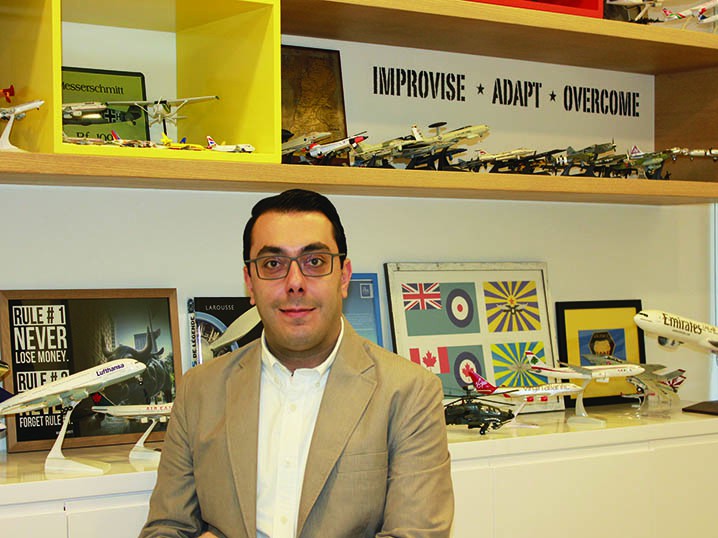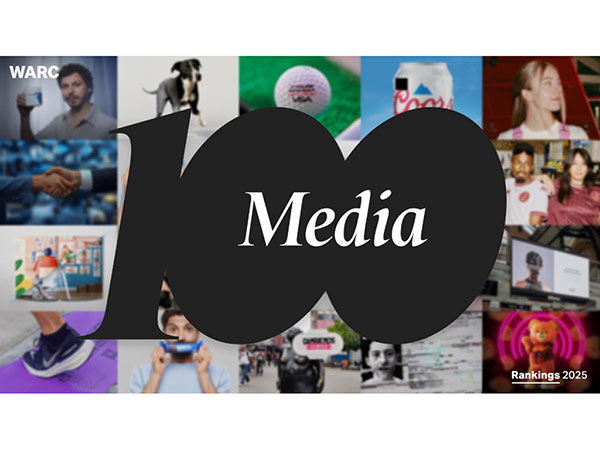News - Advertising
Georges Najm: The Local Ad Industry Screams for Change
by Jad Haidar
October 17, 2016

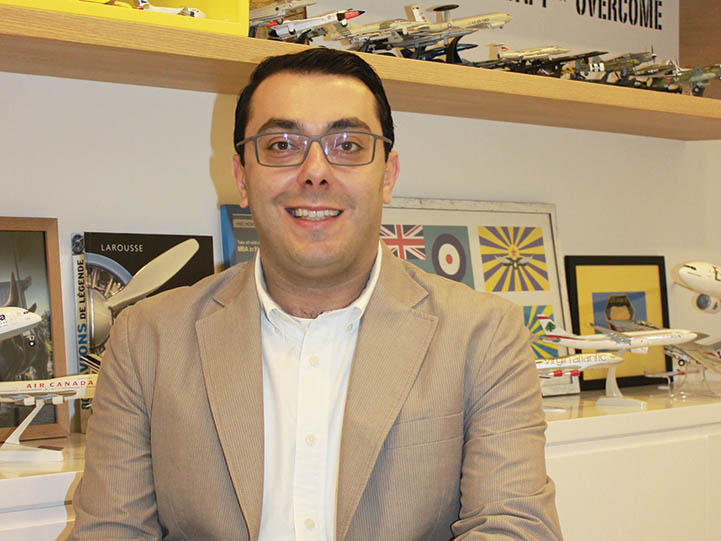
Sitting in his moderately-sized office decorated with rows of model airplanes and helicopters, Najm a meticulously well-kept middle aged man with an unusual flair for aviation, launches with vigor right into the matter saying, “The Lebanese communication scene is in urgent need for a complete make-over!”
Without being asked to explain and before hurling into why that is the case, he took a deep breath as if trying to restrain himself from bursting out and said, “In the seventies, eighties, and early nineties, Lebanese professionals of all categories such as advertisers, ad agencies, media specialists, and production houses were the ‘lords’ of the regional communication industry.”
Taking a moment to compose himself, he continued in a significantly-lower tone as if in mourning, “We, since then, have diverged from that reality and are currently operating on survival mode.”
He attributes such decay to a number of factors chief among them is the economic and political situation dominating the region. This in turn has forced him to take on responsibilities that previously would never have been his charge. “Today I find myself wearing two hats, one of a businessman and the other of an ad man,” he said.
The reason is mainly because the industry has not experienced growth in years. On the contrary, it has been on a deadly downward spiral headed straight to hell. “It is a fact that when the economy suffers, so do corporations. In this case, the first thing that happens is they cut advertising and communication expenses. There is nothing we can do in this matter. What used to happen is that agencies convinced clients that they should invest because that would work to their advantage when there is a course correction. This, no longer is the case,” he said with a mournful tone.
The ‘me-first’ mentality needs to be removed from the equation as that is tremendously detrimental in every respect.
The problem is further compounded when considering the lack of creativity, which has sadly become commonplace, if not the standard. With grave disgust, Najm asked, “Why, would a client, trying to squeeze every penny, invest in media when the overall result will be spectacularly-mediocre?”
Following up that question with an answer, he communicated two significant points related to quality, which in the past ten years has been thwarted due to the emergence of non accredited ‘educational institutions’ affording the underprivileged a degree in just about anything.
“After posting an opening for a copywriter at our agency, I received over fifty CVs none of which fit the bill. This never used to happen,” he said with an expression of a man going insane. Hesitating for a second, he smiled before continuing, “The country’s newest ‘ad agencies’, are comprised of a three-man team operating out of a two-room space!”
This kind of operation, if one may even call it so, is based on a local ‘know-it-all’ mentality, a quality the Lebanese take great pride in. “How are these agencies different from the hundreds of unlicensed car service shops specialising in the repair of ‘ALL kinds of cars?” Najm asked with a dumbfounded look.
While most, if not all agree, that drastic measures need to be taken to rectify the state of the communication industry, attempts at drafting laws to that effect have proven, futile. However, Najm remarks, there are plenty of options to consider and decisions to be made that could benefit all players one way or another.
“For us to achieve any meaningful growth, we need to alter the way we view the industry. For one, the ‘me-first’ mentality needs to be removed from the equation as that is tremendously detrimental in every respect,” he said with a cautioning tone.
Another suggestion put worth is to allocate media budgets in a more efficient and cost-effective way considering that the days when clients would shell-out hundreds of thousands of dollars on a 30-second TV commercial are long gone.
“The tools at our disposal today are insanely powerful, unbelievably effective, and exceptionally-affordable. Yet because of ‘dinosaur mentalities’ and a superficial understanding of these, their deployment remains, limited,” he said moving his head from side to side.
Lack of professionalism when it comes to local media ‘actors’, or as they like to call themselves, ‘representatives’, is yet an additional hurdle in need of serious reform.
While everyone is expanding their services in pursuit of ‘more’, some media organisations have taken an unprecedented step in that direction.
“If you own a product that you have allocated $10,000-15,000 to advertise, you now have the option to hand a brief to a TV station who in turn will produce and air the commercial,” he revealed.
In regressing to a ‘do-it-all’ mentality as the only means to stay afloat, the roles of various media institutions, which were clearly defined, have now almost blurred entirely.
“There are many easy ways today when tacking complex problems. Brands will continue to communicate but will shift the way they do so and Lebanese media and advertising agencies need to grasp this reality to effectively service the brands they have rather than fall prey for more,” Najm concluded as he rose and turned his gaze to admire the beauty of the setting sun.


